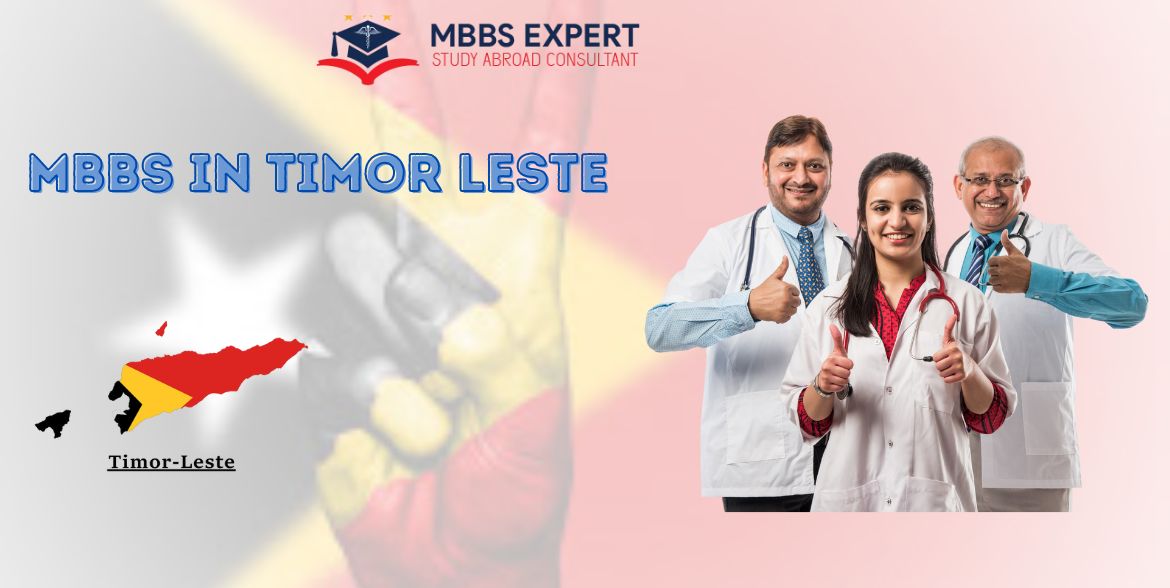MBBS in Timor Leste
The duration of an MBBS (Bachelor of Medicine, Bachelor of Surgery) program can vary depending on the country and the specific curriculum structure of the institution offering the program. However, there are general trends in the duration of MBBS programs:
- Standard Duration: In many countries, including India, the United Kingdom, Australia, and many European countries, the standard duration of an MBBS program is typically five to six years for students entering directly from high school or secondary education.
- Pre-Medical Requirements: In some countries like the United States and Canada, students are required to complete a pre-medical or undergraduate degree before applying to medical school. The duration of the pre-medical education can vary but is typically around four years. After completing the pre-medical requirements, medical school itself usually lasts four years.
- Internship or Residency: Following completion of the MBBS program, graduates often undertake internships or residencies, which can range from one to several years depending on the country’s requirements and the specialization chosen by the student.
- Integrated Programs: Some institutions offer integrated MBBS programs that combine undergraduate and medical education into a single curriculum. These programs may have a longer duration, typically spanning six to seven years.
- Accelerated Programs: In some cases, accelerated MBBS programs may be available for students who have already completed certain pre-medical or undergraduate coursework. These programs may have a shorter duration, often around four to five years.
It’s important for prospective students to research the specific requirements and duration of MBBS programs in their desired country or institution to ensure they understand the time commitment involved in pursuing a medical education.
The eligibility criteria for pursuing an MBBS (Bachelor of Medicine, Bachelor of Surgery) degree can vary depending on the country and the specific institution offering the program. However, there are some common requirements that many medical schools around the world may have. Here are typical eligibility criteria:
- Educational Qualifications: Most medical schools require applicants to have completed their secondary education or its equivalent. This often includes passing examinations such as high school diploma, A-levels, International Baccalaureate (IB), or equivalent qualifications.
- Science Subjects: Applicants are typically required to have a strong background in science subjects, including biology, chemistry, and physics. Some institutions may also require mathematics as a prerequisite.
- Entrance Examinations: Many medical schools require applicants to take entrance examinations, such as the Medical College Admission Test (MCAT) in the United States or the National Eligibility cum Entrance Test (NEET) in India. These exams assess the applicant’s aptitude for studying medicine.
- Language Proficiency: In countries where the language of instruction is not the applicant’s native language, proof of proficiency in the language of instruction (usually English) may be required. This often includes standardized language proficiency tests such as the TOEFL or IELTS.
- Letters of Recommendation: Some medical schools may require letters of recommendation from teachers, mentors, or healthcare professionals who can attest to the applicant’s academic abilities, character, and suitability for studying medicine.
- Personal Statement or Essay: Applicants may need to submit a personal statement or essay explaining their motivation for pursuing a career in medicine, their relevant experiences, and their career goals.
- Interview: In addition to written applications, some medical schools conduct interviews with shortlisted candidates to assess their interpersonal skills, communication abilities, and suitability for the profession.
- Other Requirements: Depending on the institution and country, there may be additional requirements such as health screenings, background checks, or specific prerequisite courses.
It’s essential for prospective students to carefully review the eligibility criteria for each medical school they are interested in applying to, as requirements can vary significantly between institutions and countries. Meeting the eligibility criteria is the first step toward pursuing a career in medicine, and thorough preparation and planning can increase the chances of a successful application.

 Studying MBBS (Bachelor of Medicine, Bachelor of Surgery) in Timor-Leste could be an interesting option for those seeking medical education. Timor-Leste, a small Southeast Asian nation, has been gradually developing its education system, including medical education, since gaining independence in 2002.
Studying MBBS (Bachelor of Medicine, Bachelor of Surgery) in Timor-Leste could be an interesting option for those seeking medical education. Timor-Leste, a small Southeast Asian nation, has been gradually developing its education system, including medical education, since gaining independence in 2002.
